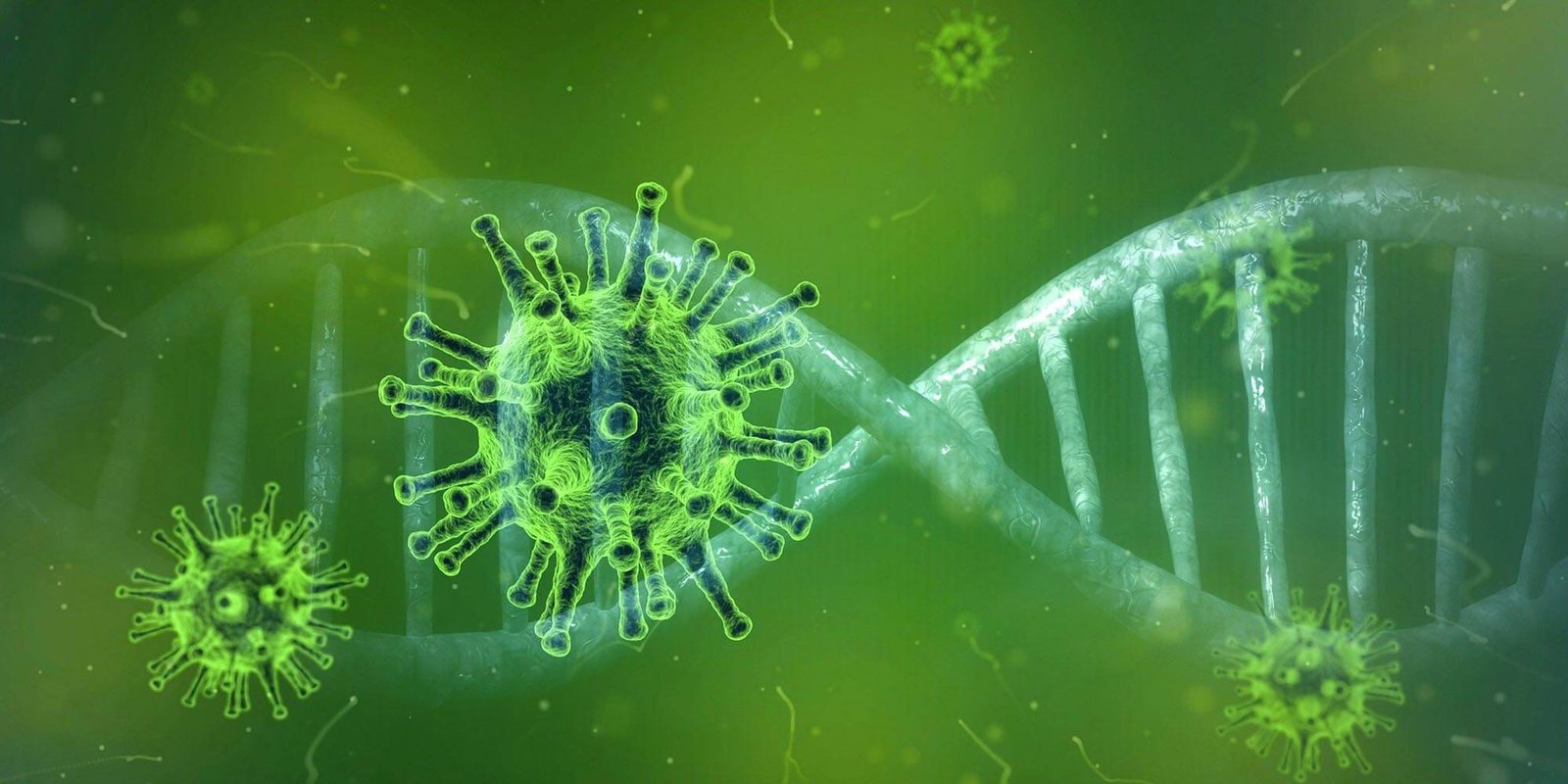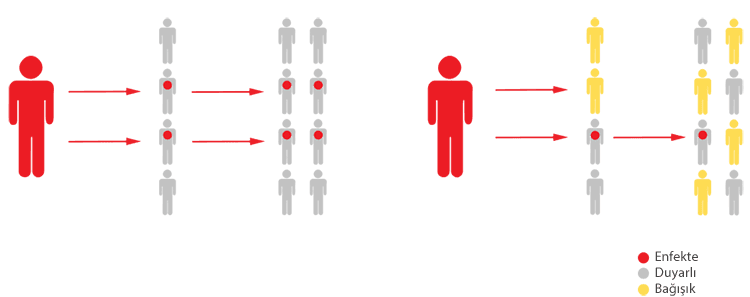Could the Coronavirus Outbreak Stop with Herd Immunity?

If herd immunity develops for the coronavirus, that is, if a sufficient number of people are sick, this disease can be prevented, but this has great devastating consequences.
The Covid-19 outbreak can be stopped by three methods. One of them is to completely stop communication between people and prevent the spread of the virus, to perform many tests and to take aggressive measures. However, this may be a little impossible now as it has spread to more than 100 countries. The second is by developing a vaccine that can protect everyone. This is not expected to be possible in a short time. And finally, to develop herd immunity in society, which is a potentially effective but rather scary method. So, letting this virus become infected into the body of a large number of people.
If Coronavirus, Covid-19 continues to spread, many people will eventually become infected, and if they survive, many people will become immune. Coronavirus will also disappear on its own as it will have a hard time finding a sensitive host. This phenomenon is called herd immunity.
Despite all the precautions taken, scientists predict that 60 percent of the world’s population will be infected with Coronavirus by the end of the year. These figures are not a random estimate. That is why epidemiologists say that herd immunity should be activated for this virus.
Recently, British Prime Minister Boris Johnson‘s announcement that improving herd immunity and not taking serious measures in society could be the official strategy worldwide. Patrick Vallance, the chief science advisor to the government, supported this idea, saying: “We need to build some kind of immunity, so we can make more people immune to this disease and reduce the transfer rate.”
Later, a similar statement came from the Holland Prime Minister Mark Rutte. Rutte said they could build herd immunity in a controlled manner to prevent the spread of Coronavirus.
However, according to the models made, it will be a disastrous strategy to apply herd immunity immediately. Because many people will get seriously ill, there will be an intense need for hospitals and intensive care units, and hundreds of thousands, perhaps millions of people will die, as the healthcare system cannot respond.
After these scenarios, England started to take measures to prevent the spread of the virus. Because slowing down the spreading rate means saving more lives by protecting the health system. But ultimately the result may be the same. So even if the pandemic decreases over time, gaining social immunity may be essential to end it completely.
After the reactions, the UK Health and Social Care Secretary Matt Hancock explained that the UK government has no herd immunity targets or policies, but this is a scientific concept
What Exactly Is Herd Immunity?

When resistance to a microbe occurs in a sufficient part of the population, the spread of the micron stops naturally. Because enough people cannot transmit the virus. Therefore, individuals who are not yet immune are “herd” immune because the virus is not circulating.
Although it is horrible to think of the consequences of billions infected by Coronavirus, which is an estimated death rate of about 1% per infection (higher mortality rates in hospitalized intensive care cases), we have seen evidence of herd immunity in previous similar outbreaks.
Let’s consider the Zika virus, a mosquito-borne disease that causes birth abnormalities and causes an epidemic panic in 2015.
By 2017, there was not much to worry about anymore. A study in Brazil checked blood samples to reveal that 63% of the population in the northeast coastal city of Salvador is already exposed to Zika. The researchers said herd immunity disrupted this outbreak.
When vaccines are given commonly or sometimes applied in a “ring” around a rare case of infection, the herd creates immunity. Diseases such as smallpox are eliminated in this way, and polio is close to deletion from the world. Various vaccination efforts also continue for the coronavirus, but they may not be ready for more than a year.
Vaccine producers can go into a race to find the vaccine that develops herd immunity, and if that immunity develops in the community without vaccination, the vaccine they develop will no longer be able to stop producing vaccines because they have no commercial value. For example, in 2017, the drug manufacturer Sanofi ended the Zika vaccine program because there was no reason to commercially produce the vaccine.
Coronavirus is new and so no one has yet immune to it. So it spreads rapidly and can have serious effects on a large number of people. For herd immunity, people must become resistant after they are infected. This is so for many microbes. People who are infected and recovered later become immune to the same disease. This is because the immune systems are loaded with antibodies that can defeat the virus.
Around 80,000 people around the world have already recovered from Coronavirus (Covid-19) disease, and although their immune degree is unknown, they are now likely to be resistant. Myron Levine, an infectious disease specialist at the University of Maryland, said, “I wouldn’t be totally surprised if people don’t become immune. Some viruses, such as the flu, find ways to change, or mutate, so immunity to such seasonal microbes may not be complete. “
When Can Coronavirus Become Herd Immunity?
The point where we have reached herd immunity is related to the number of proliferation of mathematics in microbes or the propagation tendency expressed as R0. R0 for coronavirus is between 2 and 2.5, scientists estimate that every person infected has passed it on to about two if there are no preventive measures.
To imagine how herd immunity works, consider cases of Coronavirus that multiply in this way in a sensitive population: 1, 2, 4, 8, 16, etc. However, if half of the people are immune, half of these infections never occur and thus the rate of spread effectively drops to two. According to the Science Media Center, the outbreak disappears when it reaches these numbers: 1, 1, 1, 1… And the outbreak ends when the infection rate is less than 1.
The spreading rate of Coranavirus is higher than the flu, but it has been compared to Influenza outbreaks that have swept the world before. “This looks like an outbreak of 1918. That means the end of this epidemic will either be a vaccine that is not immediately on the horizon, or about 50% of the population being immune to infection,” Harvard University Epidemiologist called the video conferencing experts around the world to video conferencing.
The more contagious a virus is, the more people need to gain immunity to achieve herd immunity. About 90% of people must be immune to protect against measles, one of the most easily transmitted diseases with an R0 greater than 12. Therefore, new outbreaks may begin when even a small number of people give up the measles vaccine.
Similarly, if Coronavirus spreads more easily than experts think, many more people need to develop resistance to this virus before the herd immunity is reached. For a 3 R0, for example, according to the simplest model, 66% of the population should be immune.
Whether it’s 50%, 60% or 80%, if Coronavirus infects billions of people worldwide, millions of people will die. So the slower the pandemic, the better the chances of new treatments or vaccines to help. That is why it is very important that we stay at home to reduce the spread of the epidemic!
The latest epidemiological models developed in the UK suggest aggressive “suppression” of the virus. The main tactic will be to isolate sick people, to try to reduce social contacts by 75%, and to close schools. Measures with high economic costs can take months.
Azra Ghani, the chief epidemiologist of the new epidemic model from Imperial College London, said, “Suppressing the transfer means we will not create herd immunity. “We must keep infectiousness very low and keep it that way, so that millions of people don’t die.”




